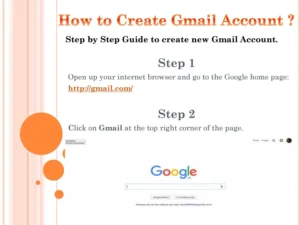Google En Passant is a unique feature of Google search that allows users to access information directly from search results without clicking through to a website. This feature is designed to provide quick answers to common queries, saving users time and effort. In this article, we will explore the history, functionality, benefits, and optimization strategies related to Google En Passant.
History and Origin of En Passant
The term “en passant” is derived from chess, where it refers to a special pawn capture move. In the context of Google search, en passant was first introduced in 2012 as part of Google’s efforts to enhance the search experience. It was designed to provide instant answers to queries related to factual information, such as historical events, mathematical calculations, and definitions.
Also Read: Dallas 18-Wheeler Accident Law Firm: Seeking Justice and Compensation
How En Passant Works in Google Search
En Passant works by displaying a snippet of information at the top of the search results page, above the organic search results. This snippet is sourced from Google’s Knowledge Graph, which is a database of factual information about a wide range of topics. The information displayed in the En Passant snippet is intended to answer the user’s query directly, eliminating the need to visit a website for more information.
Benefits of Google En Passant
One of the key benefits of GoogleEn Passant is its ability to provide quick and accurate answers to common queries. This can be particularly useful for users who are looking for simple, factual information and want to save time. Additionally, En Passant can help drive traffic to websites by providing users with a preview of the information available on a particular site.
Examples of Google En Passant in Action
GoogleEn Passant can be seen in action when users search for information such as historical dates, mathematical calculations, and definitions. For example, if a user searches for “capital of France,” Google may display the answer “Paris” in the En Passant snippet at the top of the search results page.
Common Misconceptions About Google En Passant
One common misconception about GoogleEn Passant is that it only provides information from Wikipedia. While Wikipedia is a common source of information for En Passant snippets, Google also pulls information from a variety of other sources, including government websites, academic institutions, and trusted news sources.
How to Optimize Your Website for Google En Passant
Optimizing your website for GoogleEn Passant involves ensuring that your content is structured in a way that is easy for Google to understand. This includes using clear, concise language, and providing answers to common questions in a format that is easily digestible.

Importance of En Passant in SEO Strategy
Incorporating GoogleEn Passant into your SEO strategy can help improve your website’s visibility in search results and drive more traffic to your site. By providing quick, accurate answers to common queries, you can attract users who are looking for information related to your industry or niche.
Challenges and Limitations of Google En Passant
One of the main challenges of GoogleEn Passant is ensuring that the information displayed is accurate and up-to-date. Since Google pulls information from a variety of sources, there is a risk that outdated or inaccurate information could be displayed in the En Passant snippet.
Also Read: Understanding AC Repair in North Phoenix: Key Considerations and Cost Factors
Future Trends and Developments in Google En Passant
Looking ahead, Google is likely to continue refining and expanding the En Passant feature to provide even more relevant and useful information to users. This could include incorporating machine learning and artificial intelligence to improve the accuracy and relevance of En Passant snippets.
Conclusion
In conclusion, GoogleEn Passant is a valuable feature of Google search that provides quick answers to common queries. By understanding how En Passant works and how to optimize your website for it, you can improve your website’s visibility in search results and provide a better user experience for your audience.
FAQs
- What types of queries does GoogleEn Passant support? GoogleEn Passant supports a wide range of queries, including historical dates, mathematical calculations, and definitions.
- Can I optimize my website for GoogleEn Passant? Yes, you can optimize your website for GoogleEn Passant by structuring your content in a way that is easy for Google to understand.
- Is Google EnPassant available on all devices? Yes, GoogleEn Passant is available on all devices that support Google search.
- Does Google EnPassant only display information from Wikipedia? No, GoogleEn Passant pulls information from a variety of sources, including Wikipedia, government websites, and news sources.
- How can I ensure that the information displayed in GoogleEn Passant is accurate? You can ensure the accuracy of the information displayed in GoogleEn Passant by providing up-to-date and reliable information on your website.




